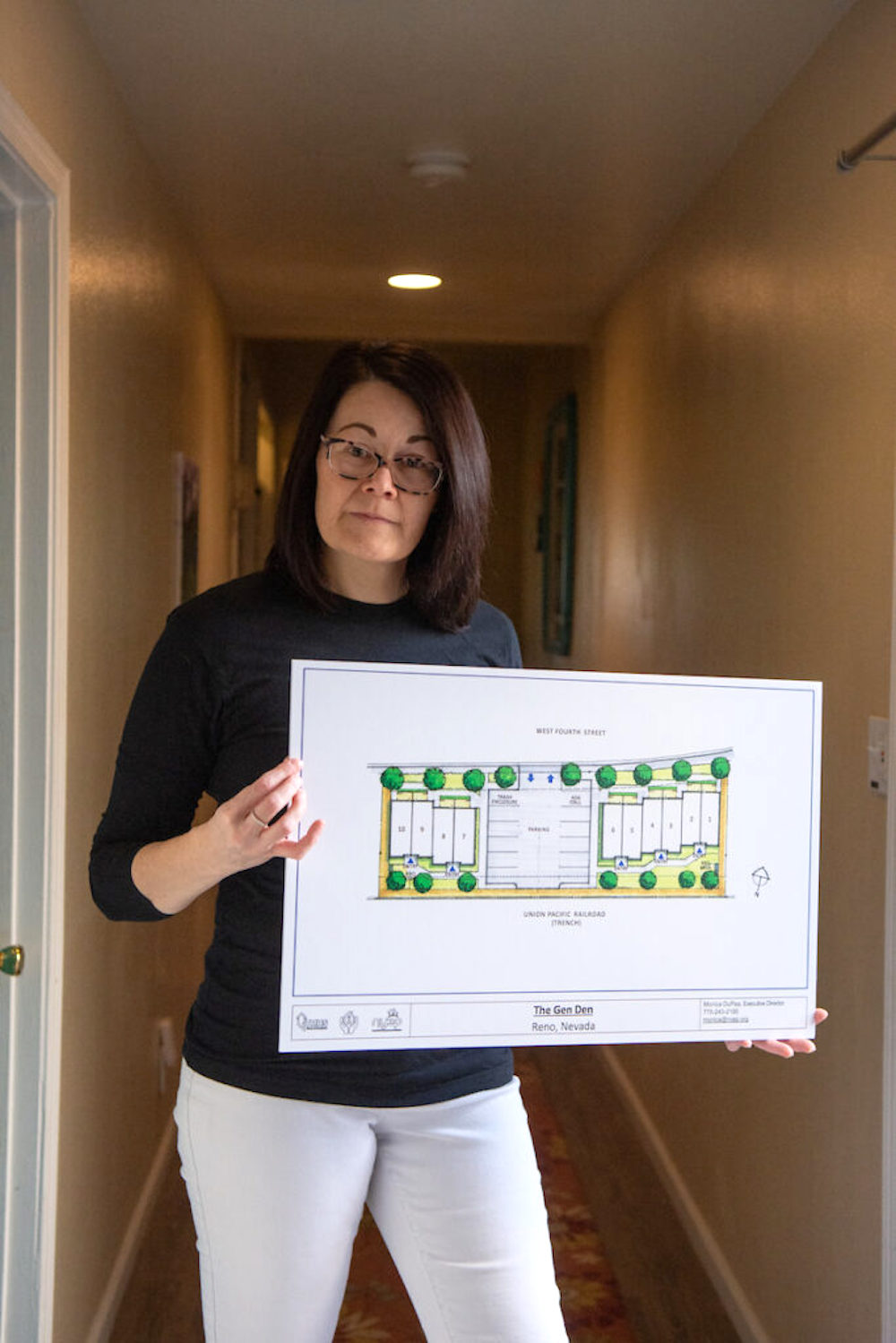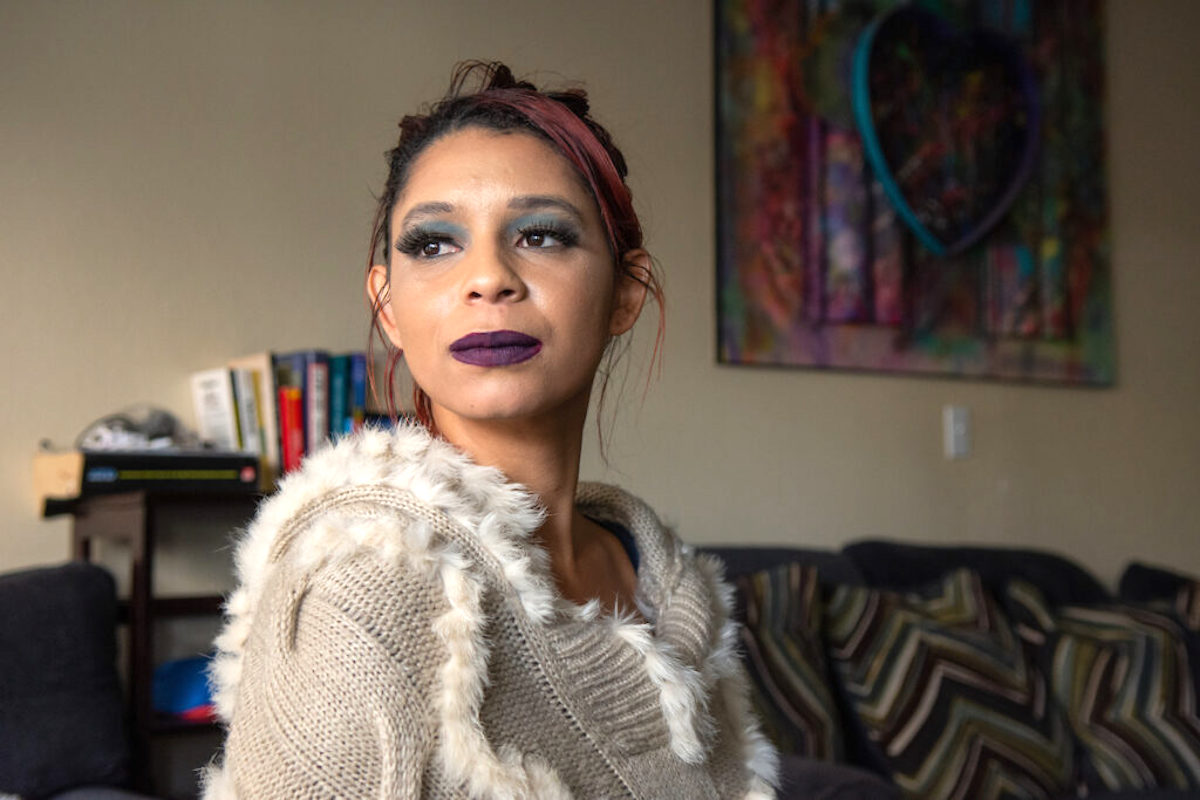The Nevada Youth Empowerment Project residence on Friday, Nov. 19, 2021 in Reno, Nev. Photo: David Calvert / The Nevada Independent
 Monica DuPea, executive director of Nevada Youth Empowerment Project, poses for a portrait with a rendering of the Gen Den campus on Friday, Nov. 19, 2021. Photo: David Calvert / The Nevada Independent
Monica DuPea, executive director of Nevada Youth Empowerment Project, poses for a portrait with a rendering of the Gen Den campus on Friday, Nov. 19, 2021. Photo: David Calvert / The Nevada Independent
 Nina Shapey of the Youth Empowerment Project in Reno poses for a portrait on Friday, Nov. 19, 2021 at the NYEP residence. Photo: David Calvert / The Nevada Independent
Nina Shapey of the Youth Empowerment Project in Reno poses for a portrait on Friday, Nov. 19, 2021 at the NYEP residence. Photo: David Calvert / The Nevada Independent